Housing
Conservative leader Pierre Poilievre’s video on Canada’s housing crisis under Trudeau gov’t goes viral
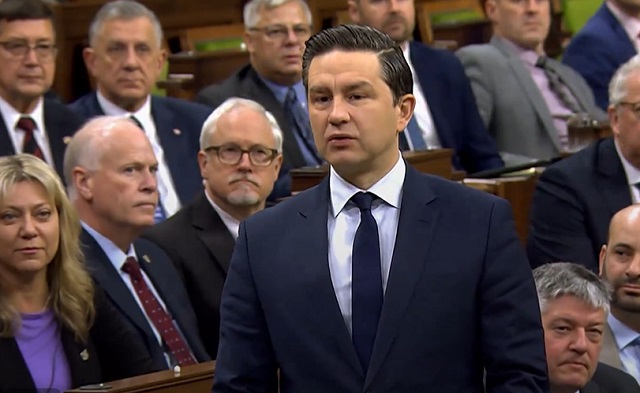
From LifeSiteNews
‘Housing hell: How we got here and how we get out’ has been viewed more than four million times.
A video by Conservative Party of Canada (CPC) leader Pierre Poilievre exposing the country’s housing prices and supply crisis, which a taxpayer watchdog said is being fueled by high-interest rates from bad fiscal policy by Prime Minister Justin Trudeau’s government, has reached over 4 million views.
“Something new and strange has happened in Canada. Canada is sitting on probably one of the largest housing bubbles of all times, something we haven’t seen before,” Poilievre said in his 15-minute video titled Housing hell: How we got here and how we get out.
“An entire generation of youth now say they will never be able to afford a home. This is not normal for Canada.”
Housing hell: How we got here and how we get out. pic.twitter.com/vVLsXMVM35
— Pierre Poilievre (@PierrePoilievre) December 2, 2023
The video goes deep into Canada’s housing market and includes statistics on why it is in such a dire state. It currently has 4.2 million views on X (formerly Twitter) after it was released on December 2.
Poilievre documents in his video, using facts to back him up, that in the coming months and years “tens of thousands of Canadians could default on their mortgages” due to skyrocketing interest rates.
He noted how the “nightmare scenario” after “generations of affordable and stable Canadian home prices” means that 66% of a person’s average monthly income is to simply “make payments on the average single detached Canadian house.”
“Given that most of the remaining 34 percent of the family paycheck is taken out by taxes, there’s literally nothing left for food and recreation,” Poilievre noted.
Taxpayer watchdog says high house prices due to Trudeau’s out of ‘control’ government
Franco Terrazzano, federal director for the Canadian Taxpayers Federation (CTF), told LifeSiteNews that the reason house prices, along with everything else, are more expensive is due to Trudeau’s “out of control” governmental spending.
“Trudeau’s never-ending deficits and the hundreds of billions of dollars the Bank of Canada printed during the pandemic are driving up the cost of everything,” Terrazzano told LifeSiteNews.
“Life is more expensive because the cost of government is out of control.”
Terrazzano noted that governmental fiscal policy is making home prices more expensive and thus out of reach for most. He said what needs to happen is a reduction in red tape.
“Taxes and onerous government regulations are making homes more expensive,” Terrazzano told LifeSiteNews.
“If governments want to make homes more affordable, they would cut taxes and the red tape that makes it harder and more expensive to build homes.”
Terrazzano highlighted a report from the C.D. Howe Institute that shows the cost of excessive government regulations on home building.
As for Poilievre, he observed how it now would take a staggering 25 years just to save enough money to make a downpayment for a simple home in Toronto.
He continued, noting how newlyweds now on average pay $1,000 per month to rent a “single room in a townhouse that they share with two other couples.”
He also raised the issue of how 35-year-olds “live in their parent’s basements” and “rents are so high in Toronto that students live in homeless shelters.”
When it comes to middle-class workers, Poilievre emphasized how “people like nurses and carpenters now live in their vehicles.”
While housing falls primarily under provincial and municipal jurisdiction, some areas, such as interest rates, are directly influenced by the federal government.
House prices have shot up in Canada due to short supply in the market, and speculative buying and interest rates have risen to highs not seen for decades. As it stands, Canada’s interest rate sits at 5%. At this same time in 2021, interest rates were 0.25%.
This past Wednesday, the Bank of Canada decided to keep rates at 5% but did not rule out future rate increases, as it “is still concerned about risks to the outlook for inflation and remains prepared to raise the policy rate further if needed.”
Interestingly, Trudeau put out a video the same day as Poilievre that he said was to address housing challenges. This video only has 264,000 views, however.
Curiously, Poilievre made no mention of Canada’s high immigration levels, which critics say has put a strain on an already tight supply.
Maxime Bernier, leader of the People’s Party of Canada, has been one of the only party leaders to call out high immigration levels and their effects on housing.
Trudeau’s ‘money printing’ pouring fuel on ‘inflationary fire’
According to Poilievre in his video, in the past one could save enough to buy a house by their mid-20s but said this “changed” about “eight years ago” when Trudeau came to power.
“When the government borrows and spends, it builds up the goods we buy and the interest we pay. The Trudeau government has doubled Canada’s debt, adding more debt than all prime ministers combined. Our finance minister has conceded that this deficit spending pours fuel on the inflationary fire,” Poilievre said.
He observed how excessive money printing through a banking scheme called “quantitative easing” has only benefited well-connected banking insiders and financial institutions that are awash with money.
“In recent years, the Trudeau government spending has exploded, and they’ve been borrowing more than lenders will lend. So, the Bank of Canada has started creating the cash. The money supply has therefore grown eight times faster than the economy over the last three years,” Poilievre said.
“More money bidding on fewer goods, including fewer houses, equals higher prices.”
Poilievre ended his video by stating that the “good news is housing costs were not like this before Justin Trudeau.”
“And they won’t be like this after he’s gone,” he added.
He said that the solution, besides a change in leadership, is for all levels of government to work together to cut red tape and taxes to encourage the construction of new homes.
Under Trudeau, mainly due to excessive COVID money printing, inflation has skyrocketed.
A recent report from September 5 by Statistics Canada shows food prices are rising faster than headline inflation at a rate of between 10% and 18% per year.
Earlier this year, the Bank of Canada acknowledged that Trudeau’s federal “climate change” programs, which have been deemed “extreme” by some provincial leaders, are indeed helping to fuel inflation.
Economy
Ottawa’s homebuilding plans might discourage much-needed business investment
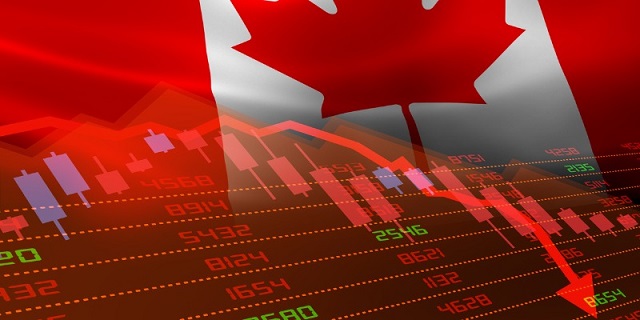
From the Fraser Institute
In the minds of most Canadians, there’s little connection between housing affordability and productivity growth, a somewhat wonky term used mainly by economists. But in fact, the connection is very real.
To improve affordability, the Trudeau government recently announced various financing programs to encourage more investment in residential housing including $6 billion for the Canada Housing Infrastructure Fund and $15 billion for an apartment construction loan program.
Meanwhile, Carolyn Rogers, senior deputy governor of the Bank of Canada, recently said weak business investment is contributing to Canada’s weak growth in productivity (essentially the value of economic output per hour of work). Therefore, business investment to promote productivity growth and income growth for workers is also an economic priority.
But here’s the problem. There’s only so much financial capital at reasonable interest rates to go around.
Because Canada is a small open economy, it might seem that Canadian investors have unlimited access to offshore financial capital, but this is not true. Foreign lenders and investors incur foreign exchange risk when investing in Canadian-dollar denominated assets, and the risk that Canadian asset values will decline in real value. Suppliers of financial capital expect to receive higher yields on their investments for taking on more risk. Hence, investment in residential housing (which the Trudeau government wants to promote) and investment in business assets (which the Bank of Canada warns is weak) compete against each other for scarce financial capital supplied by both domestic and foreign savers.
For perspective, investment in residential housing as a share of total investment increased from 22.4 per cent in 2000 to 41.3 per cent in 2021. Over the same period, investment in two asset categories critical to improving productivity—information and communications equipment and intellectual property products including computer software—decreased from 30.3 per cent of total domestic investment in 2000 to 22.7 per cent in 2021.
What are the potential solutions?
Of course, more financial capital might be available at existing interest rates for domestic investment in residential housing and productivity-enhancing business assets if investment growth declines in other asset categories such as transportation, roads and hospitals. But these assets also contribute to improved productivity and living standards.
Regulatory and legal pressures on Canadian pension funds to invest more in Canada and less abroad would also free up domestic savings for increased investments in residential housing, machinery and equipment and intellectual property products. But this amounts to an implicit tax on Canadians with domestic pension fund holdings to subsidize other investors.
Alternatively, to increase domestic savings, governments in Canada could increase consumption taxes (e.g. sales taxes) while reducing or even eliminating capital gains taxes, which reduce the after-tax expected returns to investing in businesses, particularly riskier new and emerging domestic companies. (Although according to the recent federal budget, the Trudeau government plans to increase capital gains taxes.)
Or governments could reduce the regulatory burden on private-sector businesses, especially small and medium-sized enterprises, so financial capital and other inputs used to comply with often duplicative or excessive regulation can be used to invest in productivity-enhancing assets. And governments could eliminate restrictions on foreign investment in large parts of the Canadian economy including telecommunications, banking and transportation. By increasing competition, governments can improve productivity.
Eliminating such restrictions would also arguably increase the supply of foreign financial capital flowing into Canada to the extent that large foreign investors would prefer to manage their Canadian assets rather than take portfolio investment positions in Canadian-owned companies.
Canadians would undoubtedly benefit from increases in housing construction (and subsequently, increased affordability) and improved productivity from increased business investment. However, government subsidies to home builders, including the billions recently announced by the Trudeau government, simply move available domestic savings from one set of investments to another. The policy goal should be to increase the availability of risk-taking financial capital so the costs of capital decrease for Canadian investors.
Author:
Housing
Trudeau’s 2024 budget could drive out investment as housing bubble continues
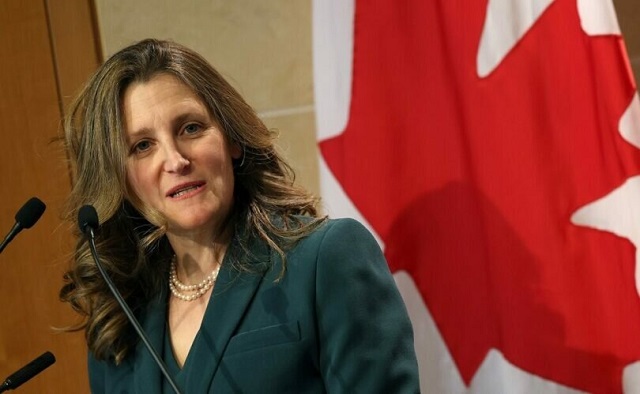
From LifeSiteNews
By David James
The extent to which the Canadian economy is distorted by a property bubble can be seen by comparing government debt with household debt, with the latter being 130 percent of GDP, nearly twice as much as American households.
Prime Minister Justin Trudeau’s federal government has brought in its 2024 budget, which projects C$53 billion in new spending over the next 5 years. It includes a significant capital gains tax increase, which some are warning will drive away investment, and a plan for more government-controlled public housing.
The Trudeau government is wrestling with a problem that is afflicting most English-speaking economies: how to deal with the consequences of a 20-year house price bubble that has led to deep social divisions, especially between baby boomers and people under 40.
House prices have tripled over the last 20 years on average, fuelled by the combination of aggressive bank lending and, until recently, falling interest rates. Neither is directly controlled by the federal government. There is no avenue to restrict how much banks lend and the Bank of Canada sets interest rates independently.
Accordingly, the Trudeau government is left to tinker at the edges. It will legislate an increase, from one half to two-thirds, in the share of capital gains subject to taxation for annual investment profits greater than C$250,000. The change will apply to individuals, companies and trusts.
Christina Freeland, Canada’s minister for finance, claimed improbably that only 0.13 percent of Canadians with an average income of $1.42 million are expected to pay more income tax on their capital gains in any given year.
That is a dubious forecast. The average house price in Canada 20 years ago was C$241,000; it is now C$719,000. Any Canadians who bought an investment property (family homes are exempt) before about 2015 are likely to have a capital gain larger than C$250,000 should they sell.
The government’s claim that the change will only affect a tiny proportion of Canada’s population is also belied by the government’s own forecast that the tax change will raise over C$20 billion over five years.
The extent to which the Canadian economy is distorted by a property bubble can be seen by comparing government debt with household debt. Canada’s government debt is fairly modest by current international standards: 67.8 percent of GDP in March 2023, down from 73 percent in the previous year. That is about half the U.S. government debt and half the average for G7 countries.
Canada’s budget deficit is also cautious by Western standards. In 2023-24 it was C$40 billion, equivalent to 1.4 percent of GDP. The U.S. budget deficit is currently over 6 percent of GDP.
By contrast Canada’s household debt, inflated by large mortgages, is at over 130 percent of GDP, making borrowers vulnerable to rising interest rates. U.S. household debt is about 75 percent of GDP. Attracted by rising house prices and the advantages of negative gearing (deducting rental losses from a property investment from income tax), Canadians have seen property as their preferred investment option.
Investors account for 30 percent of home buying in Canada, and about one in five properties is owned by an investor. Worse, the enthusiasm for property investment seems to be intensifying. According to one survey, 23 percent of Canadians who do not own a residential investment property say that they are likely to purchase one in the next five years, and 51 percent of current investors say that they are likely to purchase an additional residential investment property within the same time frame.
The problem with the bias towards property investment is that it is actually a punt on land values – and land is inherently unproductive. Business groups have criticized the government’s capital gains hike as a disincentive for investment and innovation, but the far bigger issue is investors’ focus on property, which is crowding out interest in other kinds of investments.
That means the main source investment capital for businesses will tend to come from institutions, such as mutual funds, which typically have a global, rather than local, orientation.
Faced with forces largely out of its control, the Trudeau government is fiddling at the edges. It has announced the introduction of what it calls “Canada’s Housing Plan”, which is aimed at unlocking over 3.8 million homes by 2031. Two million are expected to be new homes, with the government contributing to more than half of them. This will be done by converting underused federal offices into homes, building homes on Canada Post properties, redeveloping National Defence lands, creating more loans for building apartments in Ottawa, and looking at taxing vacant land.
The initiatives may have some effect on supply and demand, but the property price excesses are mainly a financial problem caused by unrestrained bank lending that has been fuelled by low interest rates. When a correction does occur, it will most likely be because of changed global financial conditions, not government policy or fiscal changes.
There are other measures that could be taken to address the property bubble such as reducing, or removing, negative gearing or more heavily taxing capital gains only on property but not other types of investments. But these policies would no doubt would be politically unsalable, so the Trudeau government is instead making minor changes, probably hoping that the problem will fix itself.
-

 COVID-192 days ago
COVID-192 days agoElon Musk’s X will help fund COVID shot critic’s ongoing legal battle against Canadian university
-

 Alberta Sports Hall of Fame and Museum2 days ago
Alberta Sports Hall of Fame and Museum2 days agoTHE HALFTIME REPORT News from the Alberta Sports Hall of Fame
-

 COVID-192 days ago
COVID-192 days agoQuebec microbiology professor fired for his public opposition to COVID shots
-
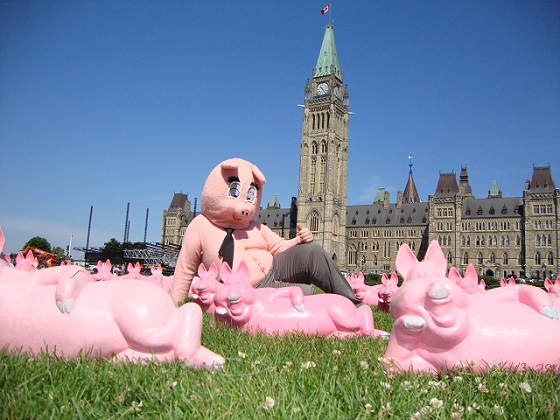
 National2 days ago
National2 days agoTaxpayers Federation presents Teddy Waste Awards for worst government waste
-
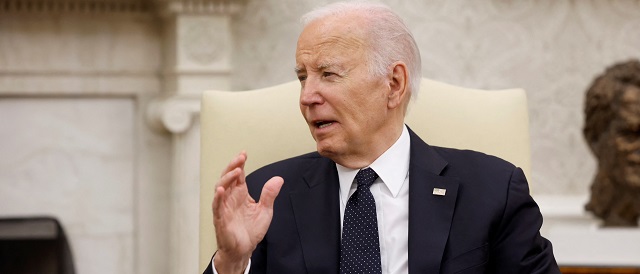
 Censorship Industrial Complex2 days ago
Censorship Industrial Complex2 days agoBiden Agencies Have Resumed Censorship Collaboration With Big Tech, Dem Senate Intel Chair Says
-

 COVID-192 days ago
COVID-192 days agoAstraZeneca withdraws COVID vaccines worldwide amid lawsuits alleging severe harm
-

 espionage1 day ago
espionage1 day agoBiden expands government’s power to spy on Americans without a warrant
-

 Censorship Industrial Complex1 day ago
Censorship Industrial Complex1 day agoInternet censorship laws lead a majority of Canadians to believe free speech is threatened: poll









